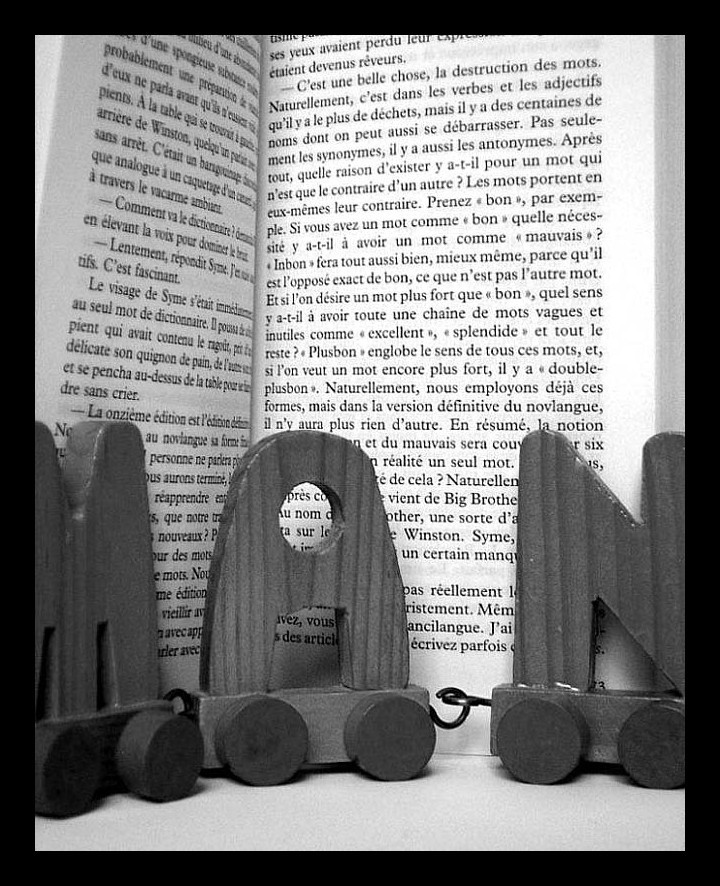HOME | DD
 tabouret — Man
tabouret — Man

Published: 2006-03-27 14:55:32 +0000 UTC; Views: 138; Favourites: 1; Downloads: 9
Redirect to original
Description
This is one of my favorite excerpts of 1984 by George Orwell. I love this book and particularly this excerpt because we can see how much man can be stupid."C'est une belle chose, la destruction des mots. Naturellement, c'est dans les verbes et les adjectifs qu'il y a le plus de déchets, mais il y a des centaines de noms dont on peut aussi se débarrasser. Pas seulement les synonymes, il y a aussi les antonymes. Après tout, quelle raison d'exister y a-t-il pour un mot qui n'est que le contraire d'un autre? Les mots portent en eux-mêmes leur contraire. Prenez "bon", par exemple. Si vous avez un mot comme "bon" quelle nécessité y a-t-il à avoir un mot comme "mauvais"? "Inbon" fera tout aussi bien, mieux même, parce qu'il est l'opposé exact de bon, ce que n'est pas l'autre mot. Et si l'on désire un mot plus fort que "bon", quel sens y a-t-il à avoir toute une chaîne de mots vagues et inutiles comme "excellent", "splendide" et tout le reste? "Plusbon" englobe le sens de tous ces mots, et, si l'on veut un mot encore plus fort, il y a "doublementplusbon". Naturellement, nous employons déjà ces formes, mais dans la version définitive du novlangue, il n'y aura plus rien d'autre. En résumé, la notion complète du bon et du mauvais sera couverte par six mots seulement, en réalité un seul mot."
'It's a beautiful thing, the destruction of words. Of course the great wastage is in the verbs and adjectives, but there are hundreds of nouns that can be got rid of as well. It isn't only the synonyms; there are also the antonyms. After all, what justification is there for a word which is simply the opposite of some other word? A word contains its opposite in itself. Take "good", for instance. If you have a word like "good", what need is there for a word like "bad"? "Ungood" will do just as well -- better, because it's an exact opposite, which the other is not. Or again, if you want a stronger version of "good", what sense is there in having a whole string of vague useless words like "excellent" and "splendid" and all the rest of them? "Plusgood" covers the meaning, or "doubleplusgood" if you want something stronger still. Of course we use those forms already. but in the final version of Newspeak there'll be nothing else. In the end the whole notion of goodness and badness will be covered by only six words -- in reality, only one word.'
Related content
Comments: 9

I remember reading that part of the book. That's a cool idea. ^^
👍: 0 ⏩: 1

doubleplusgood! I like the 'man' juxtaposed in front of the text, and using the french version makes it seem a little mysterious, and allows you to focus on the form of the photo instead of reading the text.
👍: 0 ⏩: 1

That's plusgood
Simple and clear.
Only thing bothering me: The cut edges of the M and N - they would still have to stay framed by the book, though.
👍: 0 ⏩: 1

Thanks!
Actually, I did an other shot where the M and N weren't cut, but I found the one I have submitted better
👍: 0 ⏩: 0





























